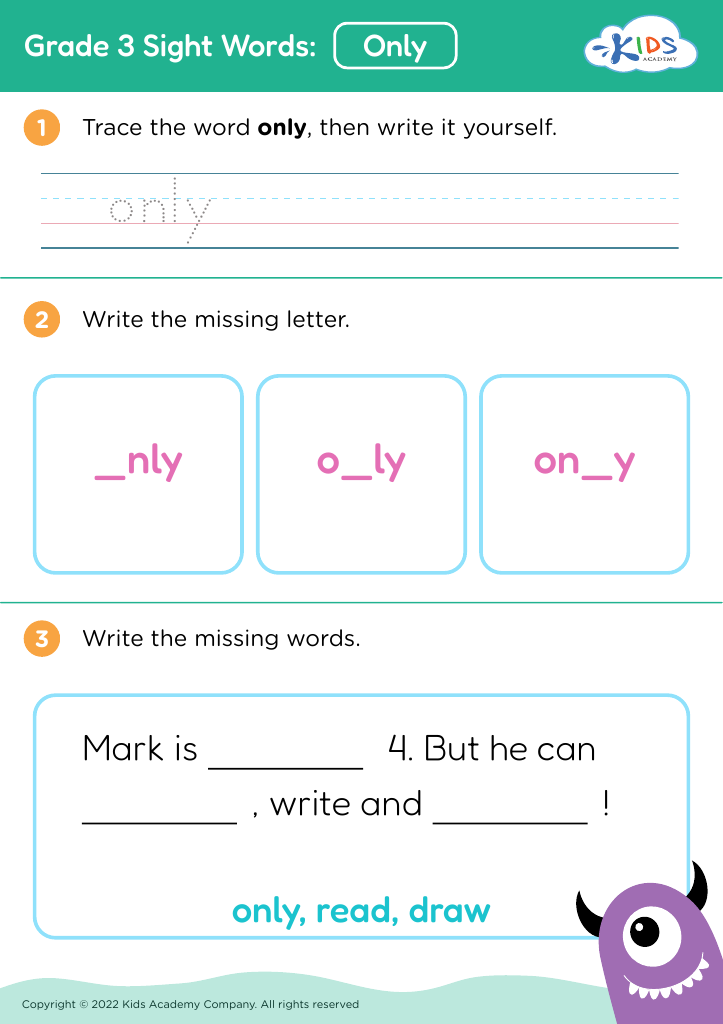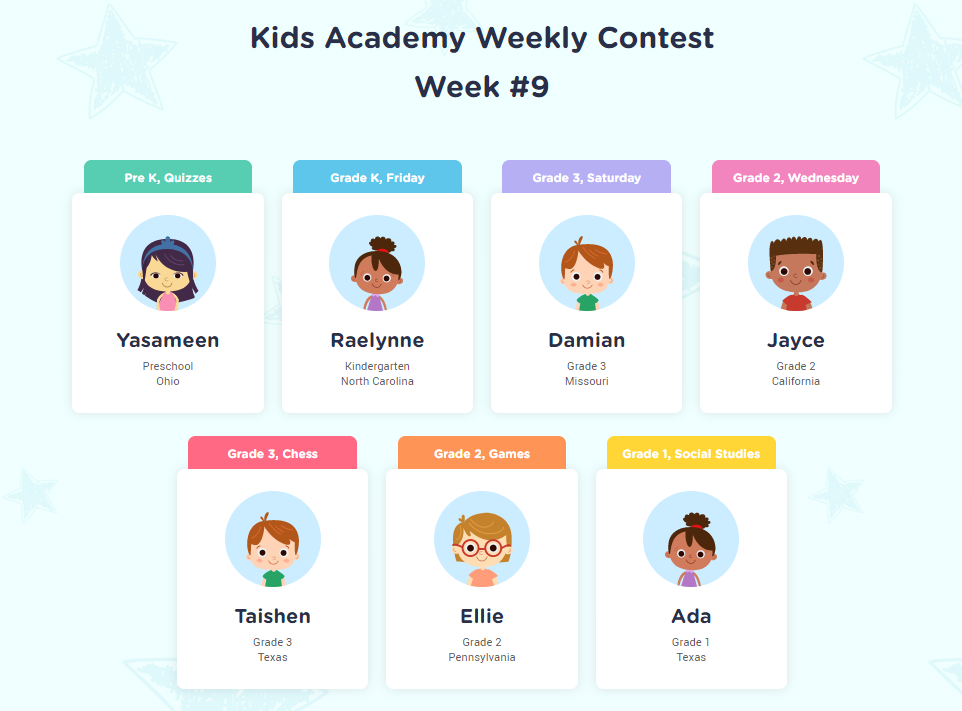Analytical thinking Worksheets for 9-Year-Olds
6 filtered results
-
From - To
Enhance your 9-year-old's analytical thinking skills with our engaging worksheets! Designed to stimulate young minds, these activities challenge children to identify patterns, make connections, and solve problems creatively. Our worksheets cover various subjects, encouraging critical thinking and logical reasoning, essential for academic success. Each exercise is tailored to be age-appropriate, ensuring your child stays engaged while learning important skills. Perfect for home or classroom use, our printable resources provide endless opportunities for exploration and skill development. Discover the joy of learning through analytical thinking and empower your child with the tools they need for a bright future!
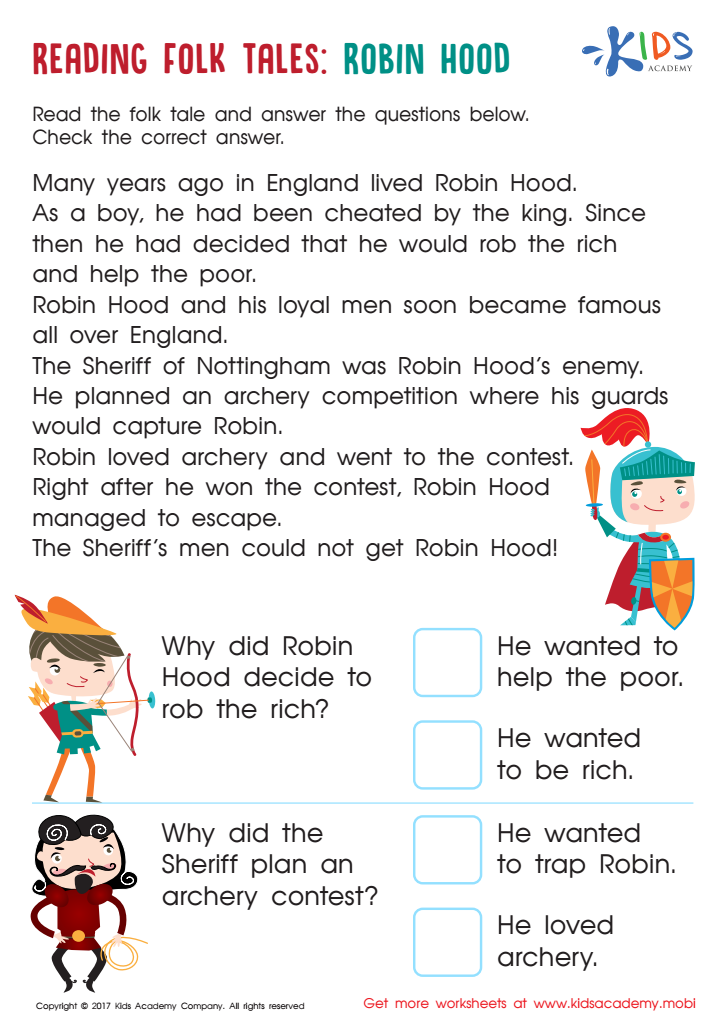

Robin Hood Folktale Worksheet
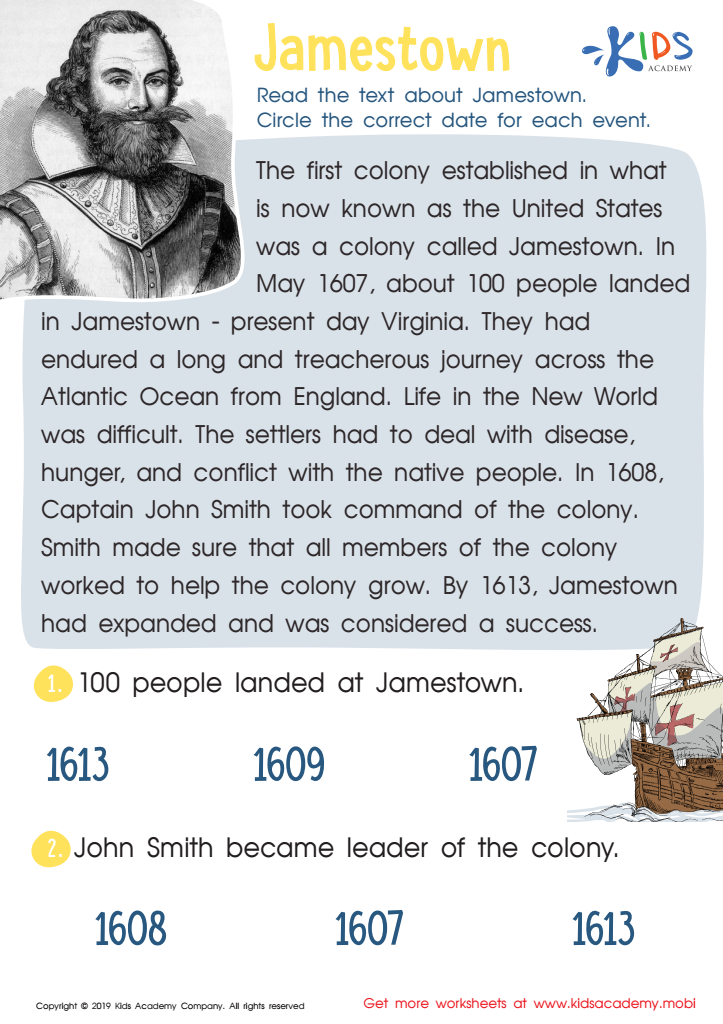

Jamestown Worksheet
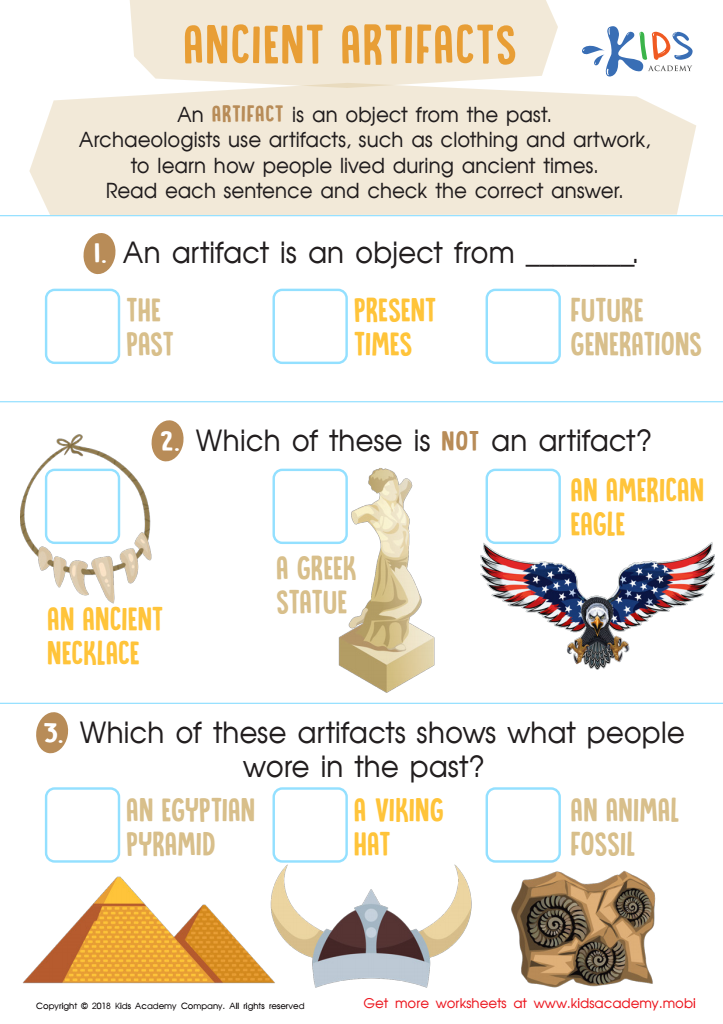

Ancient Artifacts Worksheet
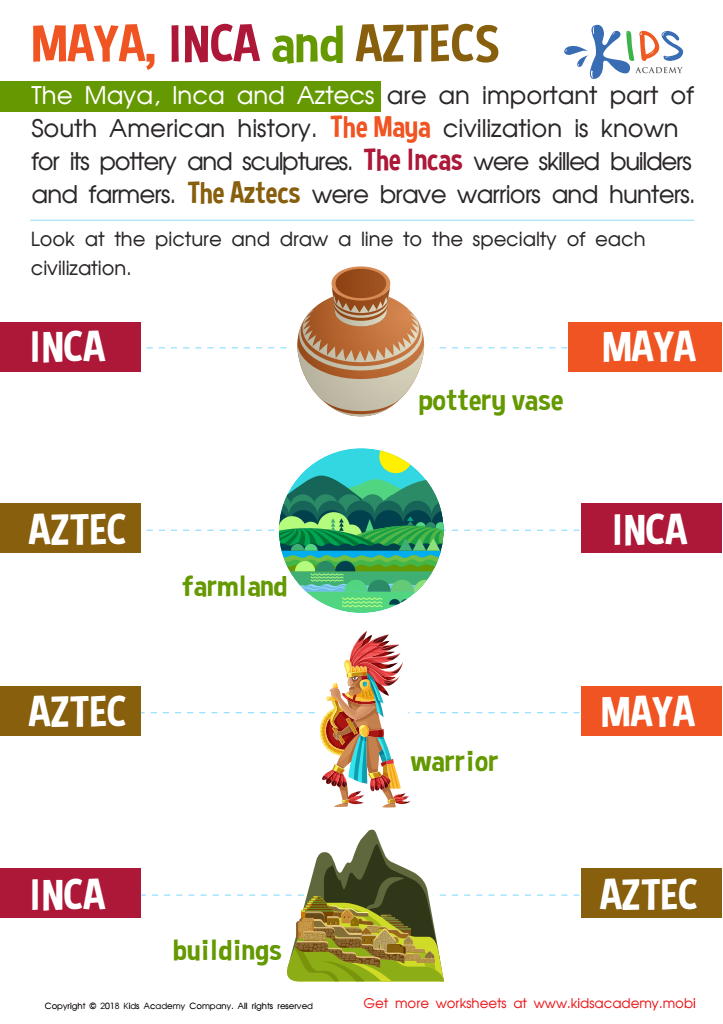

Maya, Inca and Aztecs Worksheet
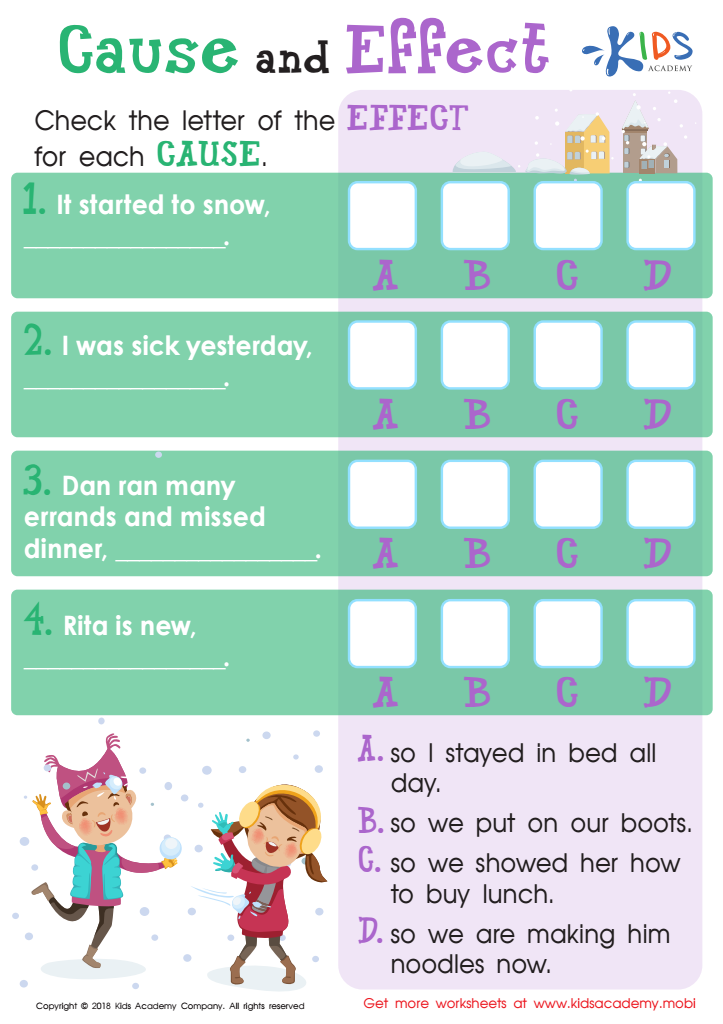

Cause and Effect Worksheet
Analytical thinking is a crucial skill for 9-year-olds, and both parents and teachers should prioritize its development. At this age, children are becoming more capable of assessing information critically, solving complex problems, and making reasoned decisions. Encouraging analytical thinking fosters a child's ability to connect ideas, recognize patterns, and analyze relationships between different concepts.
This skill not only enhances academic performance across subjects—such as math, science, and literature—but also equips children with the tools to navigate real-world challenges. A curriculum that focuses on analytical thinking encourages curiosity, inquiry, and creativity, allowing children to ask questions and seek solutions independently.
Moreover, strong analytical skills prepare children for the demands of the 21st century, where problem-solving, data interpretation, and critical evaluation are essential. In an age increasingly dominated by technology and information, teaching children how to discern credible sources from misinformation is vital.
Ultimately, by supporting the development of analytical thinking, parents and teachers help cultivate resilient, independent thinkers who can adapt and thrive in a rapidly changing world. This foundational skill not only contributes to academic success but also promotes lifelong learning and personal growth.

 Assign to My Students
Assign to My Students
